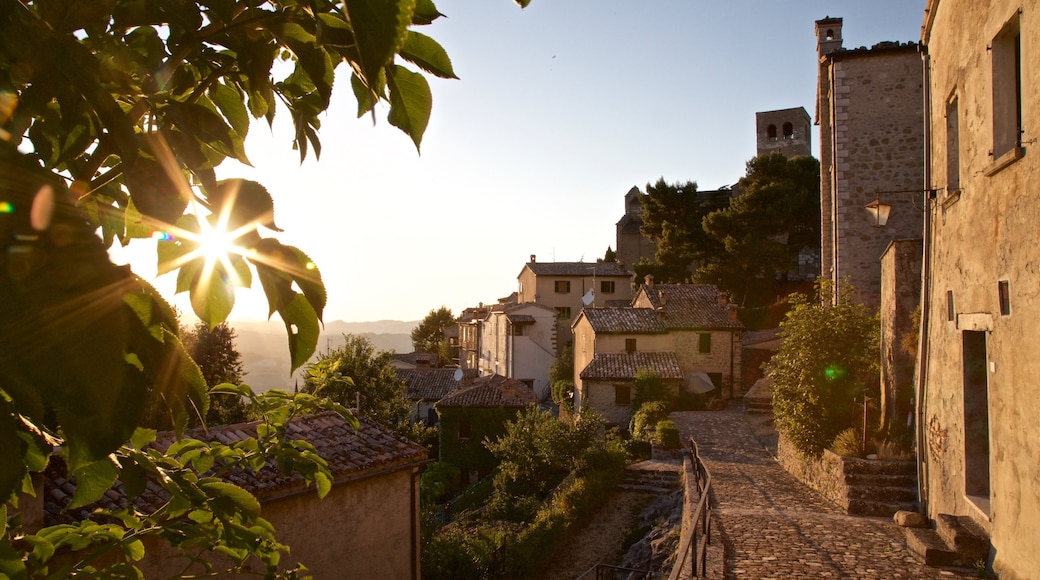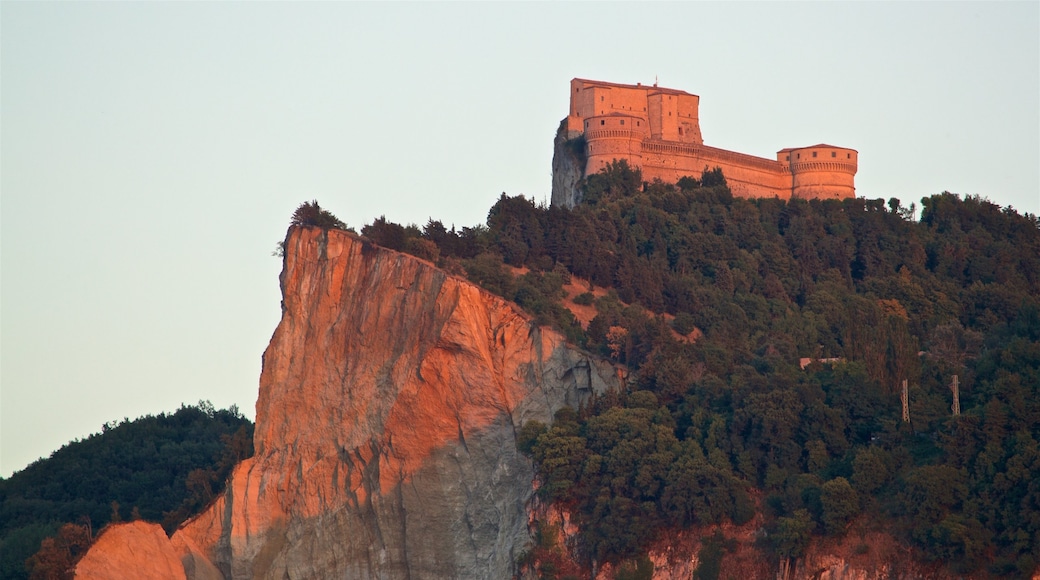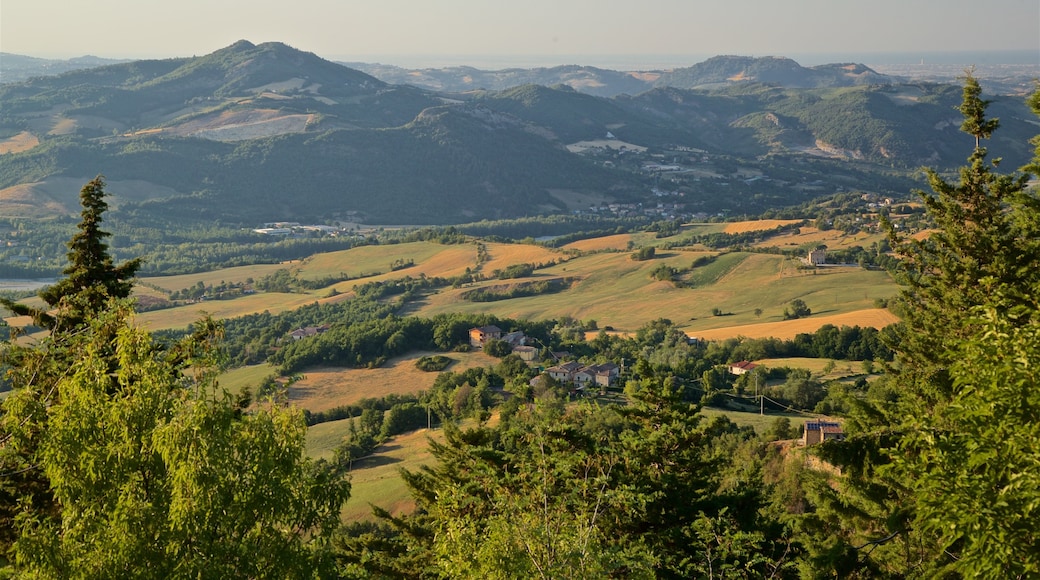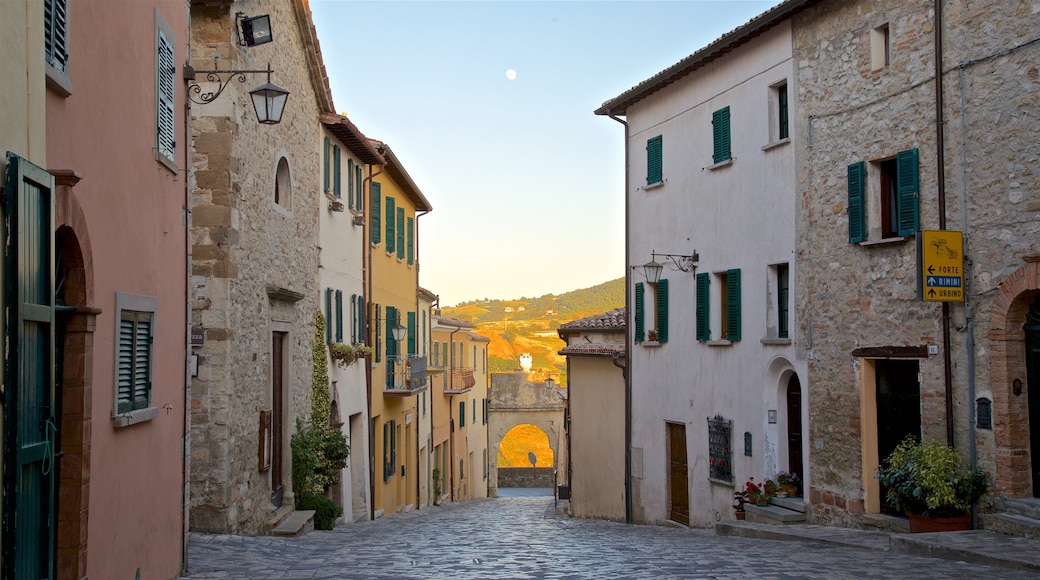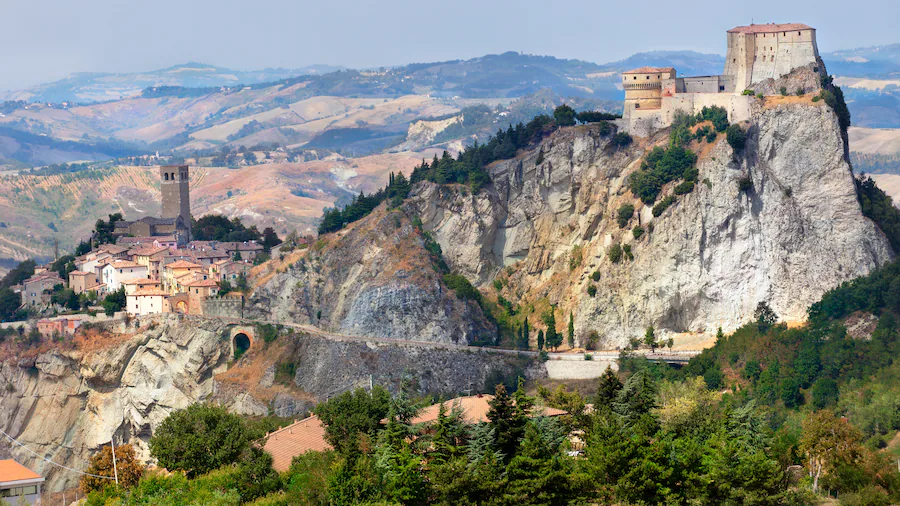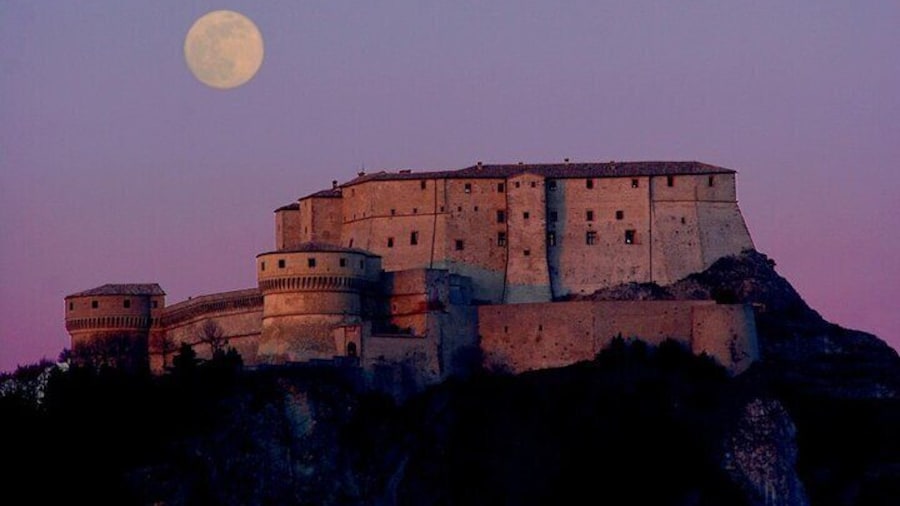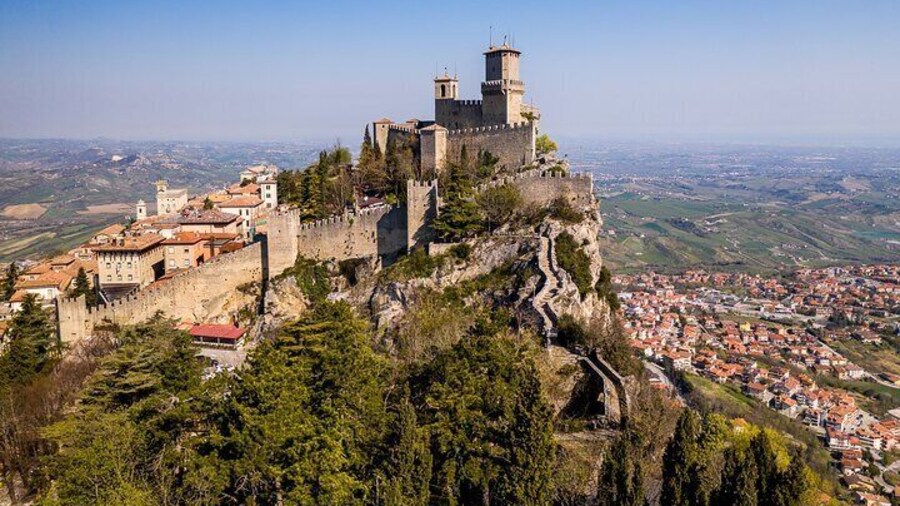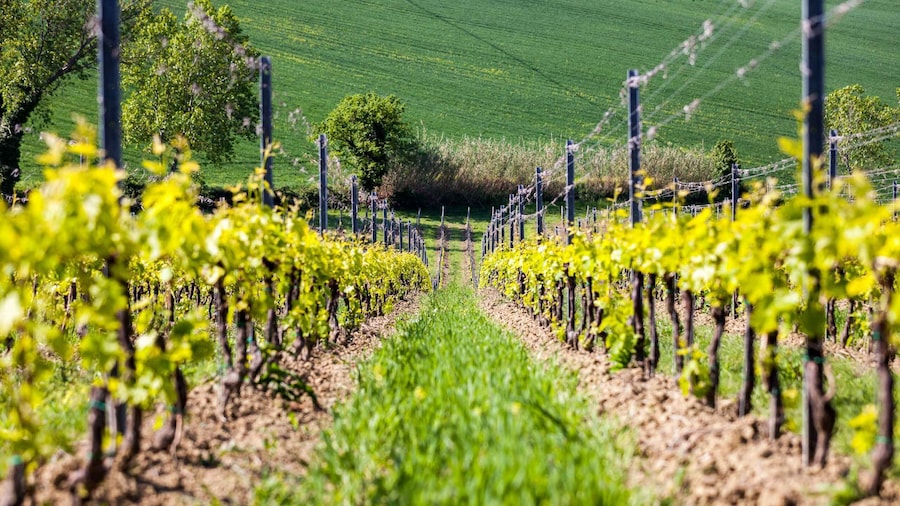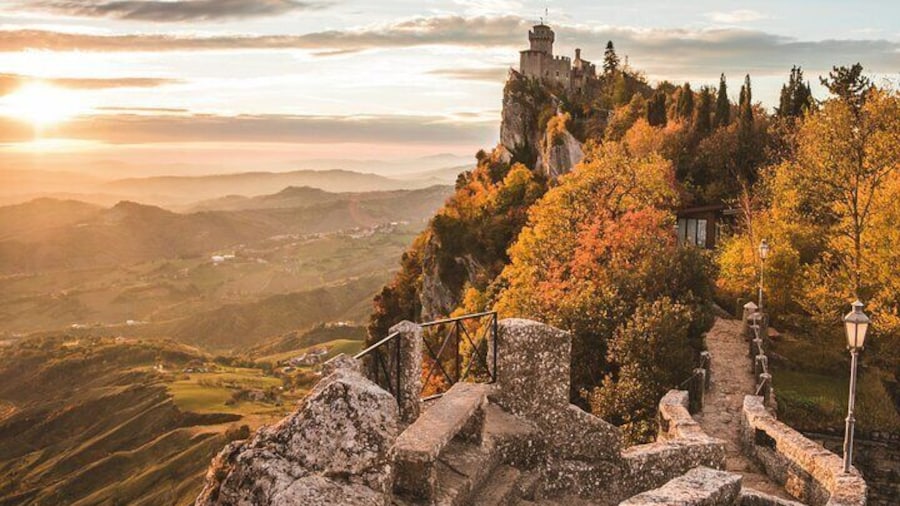Experience the charms of a bygone era while visiting the churches, palaces and fort that decorate this ancient hilltop settlement.
San Leo commands a dominant and spectacular image perched on a rocky outcrop atop Mons Feretrius mountain. Its atmospheric streets and well-preserved monuments hark back to a time when its strategic location was fought over by feuding empires. The Lombards, Byzantines, Malatestas and Papacy have all left their mark on the town. San Leo served as the Italian capital in the 10th century and later welcomed esteemed guests such as Dante Alighieri and St. Francis of Assisi.
Enter via the Porta di Sopra gateway, which leads passed thick fortifications to a labyrinth of cobblestone lanes and staircases. The sight of storeowners engaging in conversation with passersby is typical of time-honored Italian village life. Romanesque and Renaissance palaces stand at the edge of quiet squares. Pay your respects at grandiose churches such as the Chiesa della Madonna di Loreto and Pieve di Santa Maria Assunta.
Walk uphill to the Cathedral of San Leone, a Lombard-Romanesque church erected in the 12th century. Climb to the top of the adjacent Bell Tower for panoramic views across the lush countryside of the Marecchia Valley and Montefeltro region. More impressive views are offered at the San Leo Belvedere Punto Panoramico.
Among other places of interest is the 16th-century Palazzo Medici, home to the Museum of Sacred Art. Highlights include paintings by Catarino di Marco, Giovanni Francesco Guerrieri and Guercino. Access to the Fortress of San Leo is via one road that winds east from the town center. Admire the intact battlements, courtyards and towers, see a weaponry display and spot decorative motifs.
When hunger strikes, feast on homemade dishes at traditional osterias (taverns) and pizzerias. Sample a digestive liquor rumored to have been invented by the Count of Cagliostro.
San Leo is 22 miles (35 kilometers) southwest of Rimini and about a 3-hour drive west of Florence. Buses travel from Rimini with a connection in Pietracuta. Parking is available at Piazza Buscarini Mario. Get around on foot, just as members of the ruling empires did centuries before you.
